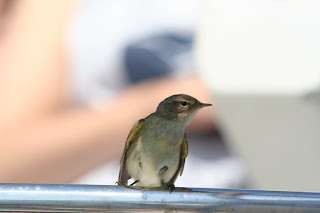
C’era una volta, in Europa, un mare ricco di pesce. C’erano più barche, più pescatori, gli stock ittici erano più sani e le comunità che dipendevano dalla pesca più fiorenti. Oggi, oltre il 70 per cento degli stock europei risulta impoverito dall’uso eccessivo di reti e la pesca artigianale è in grande difficoltà.
Alla vigilia della pubblicazione della proposta di riforma della Politica Comune della Pesca della Commissione Europea, prevista a luglio, e della Giornata Mondiale degli Oceani, l’8 giugno, più di 100 gruppi membri di Ocean2012 coinvolgeranno i cittadini di tutta Europa nella seconda Settimana Europea della Pesca, dal 4 al 12 giugno. Ognuno sarà invitato a mandare contributi con foto, video, testimonianze scritte, per raccontare quanto fosse sano il nostro ambiente marino, quanto la pesca eccessiva lo abbia modificato e come la Politica Comune della Pesca dell’UE possa diventare una concreta opportunità di cura degli oceani con un ritorno al futuro.
Durante la Settimana della Pesca Ocean2012 chiederà ai Ministri dell’UE che la Politica Comune della Pesca dia priorità alla salvaguardia delle risorse ittiche, dando così un futuro delle comunità che dipendono dalla pesca.
Risulta ormai evidente il declino degli stock ittici europei:
1. Fino a pochi decenni fa, la lunghezza media del merluzzo sbarcato nel Mare del Nord era di 1-1.5 metri, e l’età media era di 8-10 anni – oggi la lunghezza media del merluzzo è di 50 centimetri e l’età media è inferiore ai tre anni;
2. Nel 1949 la pesca del tonno rosso nel nord Europa registrava un picco di 5.485 tonnellate di catture annue – oggi, nel nord Europa, la pesca al tonno rosso è scomparsa;
3. Un tempo la flotta olandese comprendeva 700-800 imbarcazioni per la pesca alle aringhe con 11.000-12.000 persone di equipaggio e una cattura annuale di circa 50.000 tonnellate – oggi un solo peschereccio a strascico con 10-11 persone di equipaggio, pesca la stessa quantità di pesce.
Tutte le testimonianze che perverranno nel corso della Settimana della Pesca al sito di OCEAN2012, tutte le storie del mare com’era una volta e delle sue comunità, verranno raccolte e spedite al Ministro dell’Agricoltura Francesco Saverio Romano per dire simbolicamente che è necessario guardare al passato, alle pratiche di pesca rispettose del mare e delle sue risorse, per avere una chance di futuro. Oggi la storia della pesca in Italia è il racconto di reti distruttive e di pratiche spesso illegali, di sovrasfruttamento insensato che rischia di mettere in ginocchio le comunità di pescatori. La riforma della Politica Comune della Pesca può capovolgere tutto questo.
Per tutta la settimana, la campagna Ritorno al futuro, sarà su Repubblica con un quiz salva-oceani, le video-ricette della Sostenibile leggerezza del nostro mare, e una gallery fotografica della memoria.
OCEAN2012 è una coalizione di organizzazioni unite dalla volontà di trasformare la Politica europea della Pesca per fermare il prelievo eccessivo, mettere fine alle pratiche distruttive e conseguire un giusto ed equo utilizzo di stock ittici in buona salute.
In Italia fanno parte della coalizione: CTS Ambiente, Green Life, GRIS, Fondazione Cetacea, Legambiente, Marevivo, MedSharks, Oceanus onlus, Stazione Zoologica Anton Dohrn di Napoli, Tethys Research Institute
Ulteriori informazioni
 La drammatica situazione del mare, e del Mediterraneo in particolare, viene finalmente affrontata dai media rivolti al grande pubblico. La puntata di Annozero di qualche giorno fa vale la pena di essere vista - nell'interesse del mare, dei pescatori e dei consumatori.
La drammatica situazione del mare, e del Mediterraneo in particolare, viene finalmente affrontata dai media rivolti al grande pubblico. La puntata di Annozero di qualche giorno fa vale la pena di essere vista - nell'interesse del mare, dei pescatori e dei consumatori.























